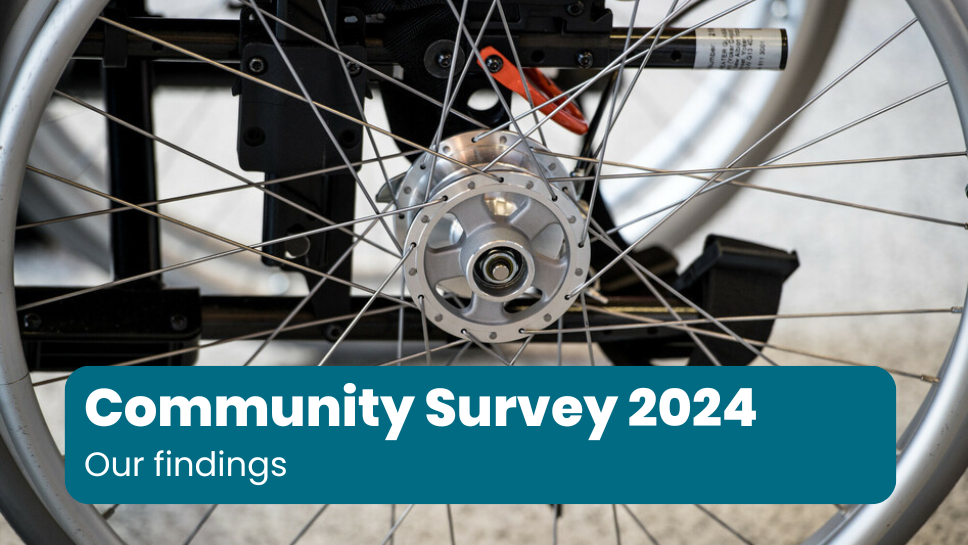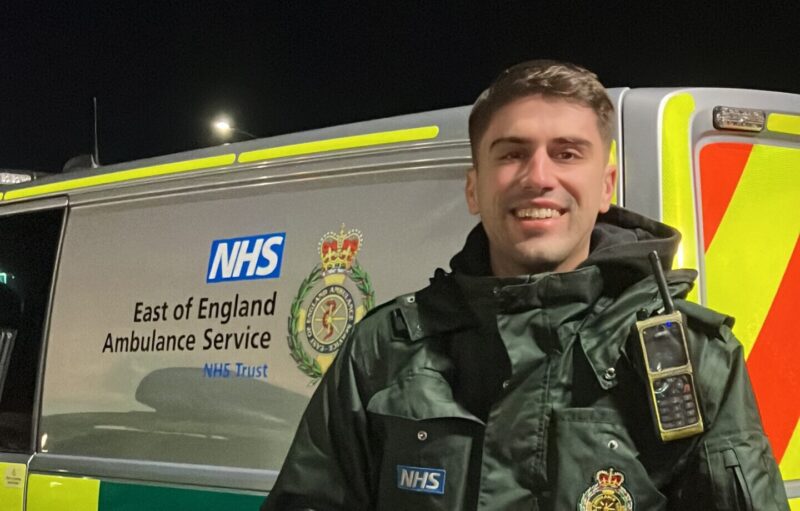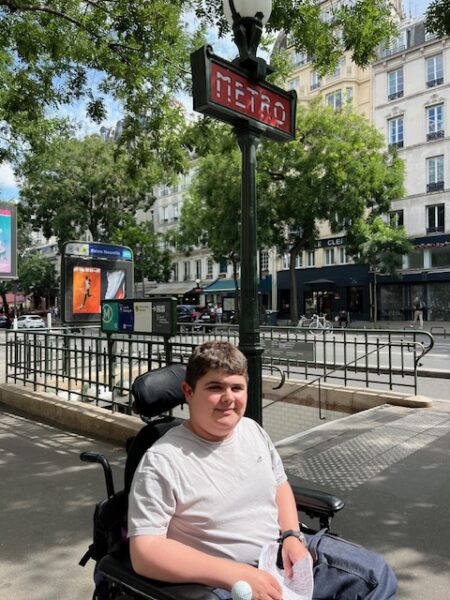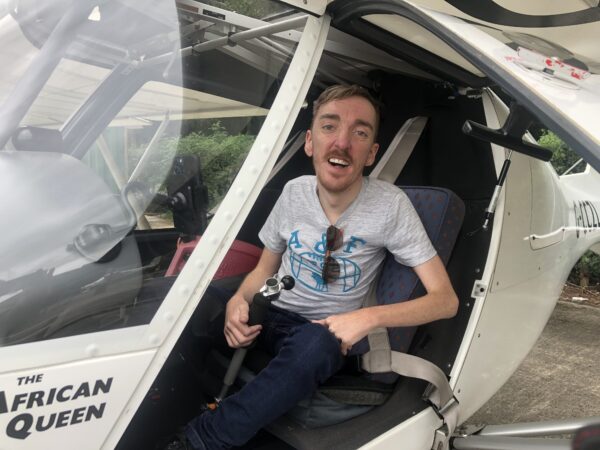At the end of 2023 we wanted to build a better understanding of the priorities of people living with a muscle wasting and weakening condition to inform our work. We launched two surveys – one for people living with a muscle wasting and weakening condition and one for people supporting a person living with a condition.
How you're shaping our work

Nearly 700 of you shared your experiences and raised issues. We’re so grateful to everyone who took part. The findings have helped identify areas where change is most needed and will help direct our work and campaigning.
Here are some of the findings and what we’re doing about them now and in the future:
Financial security is a key issue
- 49% of you said financial security was a key policy priority issue.
- 24% of you disagreed or strongly disagreed that you felt financially secure, in contrast to 58% who either agreed or strongly agreed that they felt financially secure.
Through our helpline and advocacy service we provide practical advice and signposting. This ranges from information about benefits that might be available and the process to apply for them and challenge incorrect decisions; advice on fundraising for equipment or care needs; and information about other possible sources of financial support. If you’re unable to navigate the system yourself or require our assistance to secure support you’re entitled to, we can act on your behalf through our advocacy service.
In 2023/24, 15% of requests for support to our helpline service related to welfare information or the cost of living, and 34% of advocacy cases we handled related to accessing benefits..
Through the Joseph Patrick Trust we’re able to provide grants to help meet the costs of powered mobility equipment and, at the height of the cost-of-living crisis, provided supermarket vouchers to our community to help ease some of the financial stress they faced.
The financial implications and pressures from living with a muscle wasting and weakening condition is an issue that we have consistently shone a light on and sought change for our community. In February 2020, we published a report on how the benefits system was failing to meet the needs of our community. In October 2022, we published a report on the impact of rising costs on people living with a muscle wasting and weakening condition. We are also a member of the Disability Benefits Consortium, a national coalition of over 100 different charities and other organisations committed to working towards a fair benefits system.
This will be a key area of focus for our policy work going forward. We will revisit our previous work in this area and identify areas of change that still need to take place
We’ll continue to support you to access financial support you’re entitled to and help you navigate the often complex systems and processes.
The importance of community, socialisation and independence
- 41% of you said community, socialisation and independence was a key policy priority area.
We connect a community of more than 110,000 people living with one of over 60 muscle wasting and weakening conditions, and all the people around them.
Through our support groups, webinars, peer support volunteers and information days we bring people together, provide opportunities to build relationships and meet others who understand what you’re going through.
Raising awareness among healthcare professionals
You told us:
- It took four or more meetings with healthcare professionals for the majority (55%) of you to get a diagnosis.
- Just under half of you (47%), faced being misdiagnosed at some point.
- A significant majority of you (69%) waited more than a year to receive a diagnosis.
- 84% of you said increasing the understanding and awareness of muscle wasting and weakening conditions was a key priority.
The key priority from the survey was to raise awareness among non neuromuscular-specialist healthcare professionals of muscle wasting and weakening conditions.
We provide a range of resources and awareness raising opportunities for non-specialist neuromuscular healthcare professionals, including an e-learning resource for General Practitioners. As well as events, webinars and conferences and connections to local specialist services through our Regional Neuromuscular Networks.
These aim to help healthcare professionals recognise potential cases of muscle wasting and weakening conditions, understand the referral pathway; and how to better support your needs.
Going forwards, we’ll engage non-neuromuscular specialist health leaders and influencers and connect them with you and specialist neuromuscular health professionals. This will encourage conversations about how healthcare professionals can be better equipped to recognise and support people with muscle wasting and weakening conditions. We’ll also explore this issue with our Services Development Committee to better understand other activity which could address this. And we’re reviewing our suite of e-learning resources.
How you heard about us
- Just over half of you (51%) said you first heard about Muscular Dystrophy UK from a Consultant, Allied Health Professional or GP
We hugely value the relationship we have with the healthcare professional community and know that by working in partnership we can better support you. We undertake a range of activity to ensure we’re well connected to neuromuscular centres so there is an easy signposting route from them to us when it’s clear someone they see would benefit from our support. This includes our Neuromuscular Centres of Excellence programme, healthcare professional conferences and virtual seminars and our facilitation of Regional Neuromuscular Networks.
In the future, we’re exploring how to further improve regular communication between us and the healthcare professional community so that regular updates and reminders about the services we provide are available.
Shaping our research funding
The survey findings have also shaped our new research grant call around the theme of improving quality of life. Researchers have until Wednesday 12 June to submit proposals for projects related to improving accessibility, mental health and psychological support, assistive technology or physical aids, lifestyle (exercise or diet), fatigue, physiotherapy, pain management or hydrotherapy. We’ll be reporting on the outcome of the grant call later this year.


